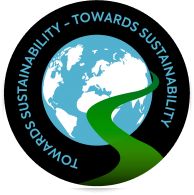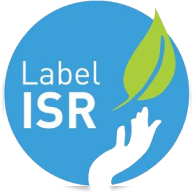What is a sustainable and responsible investment?
What is a sustainable and responsible investment?
Responsible investment means selecting companies by considering extra-financial criteria (ESG):
- Respect for the Environment
- Employee welfare and respect for Social rights
- Good corporate Governance
Birdee applies a fund selection policy based on these criteria, using several certification factors





MAKE YOUR MONEY MEANINGFUL

2021 marked a real turning point for responsible finance with the entry into force of the "Sustainability Disclosure Regulation" (SFDR). This regulation informs you about the ESG characteristics of financial products:
Article 9 designates the most virtuous products that have a sustainable investment objective promoting an environmental and/or social goal.
Article 8 incorporates environmental and/or social characteristics but without pursuing a sustainable investment objective.
Article 6 refers to products that do not fit into either of these two categories.
At Birdee our goal is to reach 100% of articles 8 and 9 in our ETFs.
Investment Managers at Birdee

READY TO INVEST IN THE CAUSES THAT ARE IMPORTANT TO YOU?

Is responsible investment part of an estate?
Yes, responsible investing can be part of an estate. Responsible investing is a type of investment that takes environmental, social and governance (ESG) factors into account when making investment decisions. Responsible investments can be included in an estate like any other asset, and can be used to pursue the values and engagement objectives of the deceased.
Responsible investments can be made in a variety of asset classes, including equities, SRI life insurance, bonds, real estate and mutual funds.
It can therefore be included in the assets passed on following a person’s death. However, what does or does not become part of the estate depends on a number of factors:
– the law in force in the place where the estate is opened,
– provisions made in a will or other estate-planning document,
– legal or contractual obligations to which the deceased was bound.
For the heirs, it’s as much a question of continuing to make their investments grow as it is of pursuing a socially committed project while respecting the values of their legatee.
Who can inherit responsible investment assets?
All persons or entities (associations, for example) designated by the deceased themselves. The deceased can make :
– a will naming his or her heirs,
– a trust contract,
– a mandate in case of incapacity.
If the deceased does not have a valid will or estate planning document in place, the beneficiaries will be determined according to the law in effect in the place where the estate is opened. This is known as the law of succession.
The most common system of inheritance in France is the regime of legal community, under which the deceased’s assets and rights are shared equally between his or her spouse and children. However, there are other possible inheritance regimes, such as separation as to property or participation aux acquêts.
It is important to note that inheritance law in France also allows people to dispose of their assets by will, enabling them to freely designate who will inherit their property on their death.
In France, it is forbidden to disinherit one’s children. So, even if the deceased’s will provides for part of his or her property and assets to be bequeathed to associations or friends, this cannot be to the detriment of his or her “reserved” heirs. These are the heirs who must receive a share of the inheritance. This rule also applies in the event of a living gift: a child cannot receive a gift of greater value than that of another child. This is known as a “shared donation”.
For advice on wealth management and rights, get in touch with experts who can help you manage your investment portfolio and deal with tax and reporting issues!
What is the main objective of the socially responsible investment (SRI) label?
This is a selection criterion if you want to invest your money in responsible funds. The SRI (Socially Responsible Investment) label is a quality label designed to promote investments that take into account both financial and extra-financial criteria. The main aim of the SRI label? To enable investors to commit to projects that have a positive impact on society and the environment, while generating financial returns over the medium to long term.
In concrete terms, the SRI label selects companies that do not, for example, finance fossil fuels or sectors such as arms, pornography, etc., and that have an ethical mode of governance.
The SRI label is proof of an approach and respect for extra-financial criteria, also known as ESG (environmental, social and governance) criteria. The SRI label is a made-in-France product that was created in 2016 by the French Ministry of the Economy and Finance. The label audit is carried out by three bodies accredited by COFRAC (Comité français d’accréditation): Afnor Certification (Association Française de Normalisation), Deloitte, EY France.
The SRI label is awarded to funds that meet strict sustainability, social and environmental responsibility specifications.
To obtain the SRI label, funds must define ESG objectives and put in place an analysis methodology with a view to obtaining results, and integrate extra-financial criteria into their selection process for companies or investment projects.
For example, setting up voting and dialogue policies with companies, adopting ethical and responsible management, and communicating transparently on their investment strategy and their societal and environmental impact.
Based on the results of the audit, the auditing body independently decides whether or not to award the SRI label. It then notifies the French Ministry of the Economy and Finance so that the fund can be added to the list.
In short: the SRI label is a way for investors to ensure that their investments are in line with their values and sustainability concerns. On the other hand, the label can also be used by companies to demonstrate their commitment to sustainability and social and environmental responsibility.
💡 To find out more, visit the site dedicated to the SRI label. You can also find the list of label funds, precise criteria and recent news.


